A Tale Of Two Beards Plus 10 Wild Turkey Fun Facts
In Michigan (and plenty of other places where the wild turkey roams), two beards are always better than one…or so I told my hunting pals.
This year, the opening day of spring turkey season found me in my favorite deer blind rather than the woodlot that I typically occupy. Reason: Lazy! Rain, heavy wind, and cold temps (threatening snow) were in the offing, and I had already “guided” (loose definition there!) my brother Dave and his granddaughter Rookly to my usual spot. Also, my longtime friend was trying out the area near an open cow pasture that is also a proven turkey producer.
I had seen a few birds roost near this box blind in past deer seasons, so I took a shot… figuratively and literally. At least I’d be warm and out of the wind.
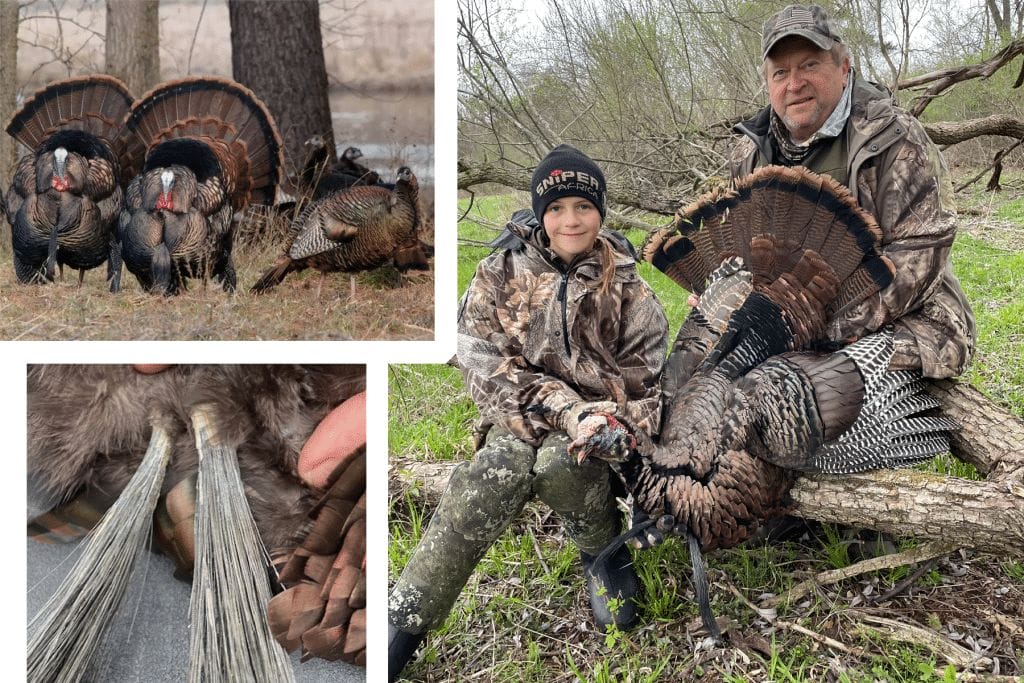
Lazy Hunter Equals Lucky Hunter
Really getting old and lazy, I drove closer to my blind, hopped out, and before I could shut the truck door, I heard BBBBBLLLLLLLLLBBBB. Or something like that… tree gobbles galore… and you guessed it, all coming from the lowland/flooded timber area surrounding my blind. Of course, that threw me for a loop which led me to hastily leave the truck… and my decoys, in a mad dash for the blind.
Slow walking into the blind, creeeaaaak goes the door hinge, then plopping down in my swivel chair, I opened the tinted windows and listened to the unreal madhouse gobbling of at least 15-20 roosted turkeys. They were in the oaks next to the creek, only 40 yards away in the pre-dawn light. I only made a soft purr and yelp on the old push-pin box call and thunderous response by the boys in the trees… as well as a good number of hens. Am I dreaming this?
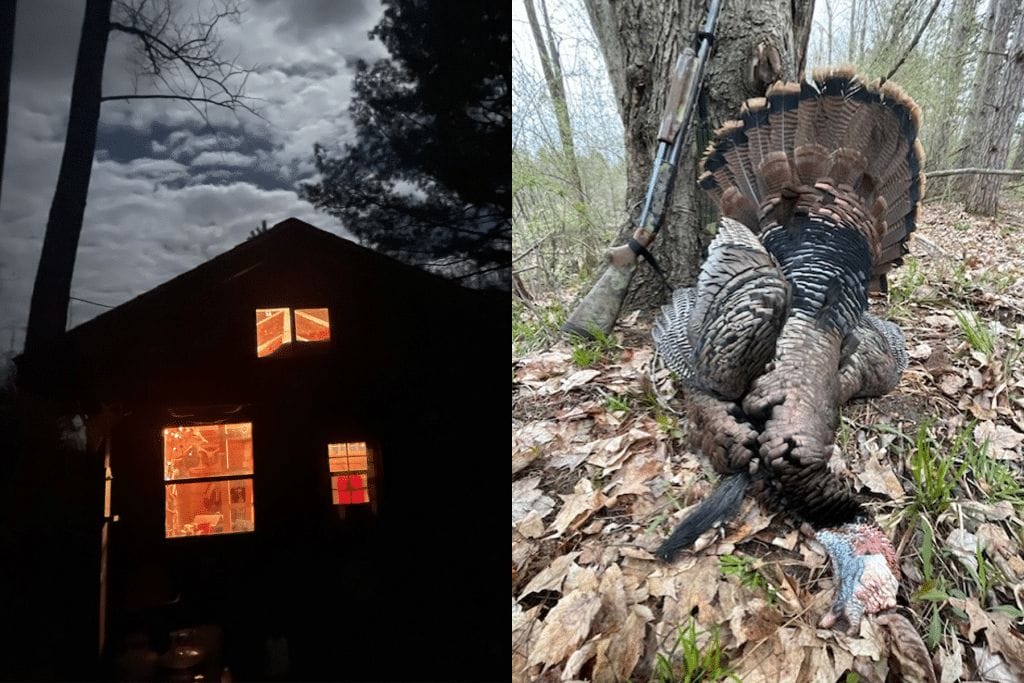
No Turkey Decoys, No Problem…
Let’s see, “If I can call a hen over here, maybe some toms will follow” was my brilliant thought. “Should’ve brought my decoy… oh well, I’m here now.”
Barely settling in and zipping up my jacket, the birds began an early fly-down. I could make out a dozen birds un-gracefully crashing to the ground. I still don’t see how these ground birds manage to not fall out of the tree they perch in. I’ve actually witnessed one poor jake hang on to a broken branch he’d roosted on as it separated from the tree, and he stayed attached all the way to the crash on the ground!
The Ol’ Turkey-Getting Checklist
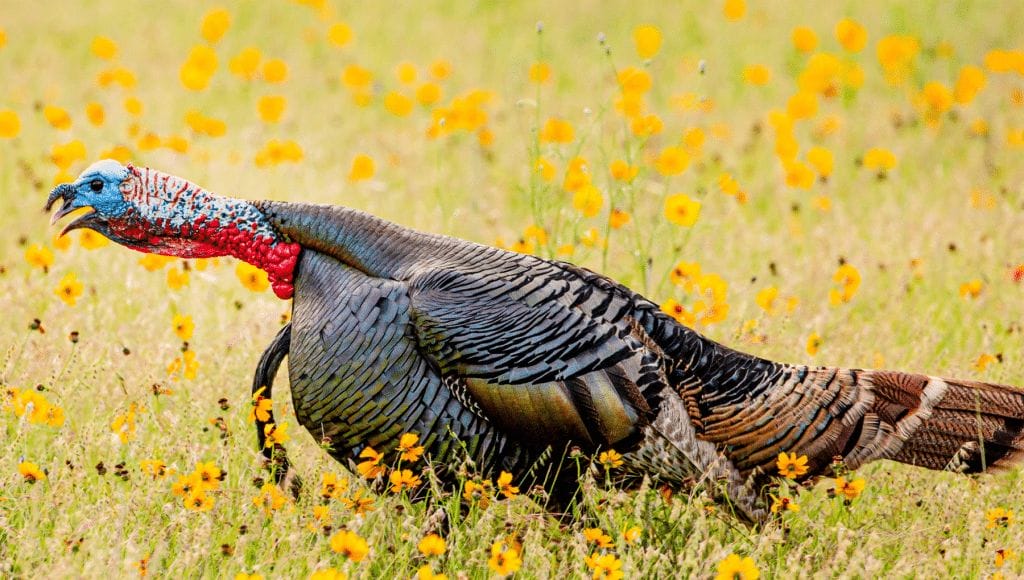
So, as my buddy and I had discussed before leaving turkey camp that morning, the “classic” or textbook case for the turkey hunter is:
1) Roost bird the night before after endless scouting, check (didn’t do)
2) Enter the area within 100 yards without spooking said bird, check (didn’t do)
3) Make one soft hen yelp or purr to let them know you’re there, check (did do)
4) Wait for the tom to fly down and come running to his death at the end of your shotgun, full choke, jelly head tungsten shot. Well, that last part never happens for me. In this case, it sorta-kinda did!
Dropping The Hammer
Four big strutters were heard before being seen, spitting and drumming after flying across the creek below a high bank and thick brush. Watching and listening, I could see the lead tom was the boss and he was in a hurry. Steady side to side waddle as he sauntered his way towards me. One short hen yelp and he let loose with a loud gobble while in full strut, with his three buddies in tow.
I couldn’t see the beard well in the low light and brush, but it didn’t matter… I waited until his white head was about 15 yards away and made a clean shot. He barely fluttered. The other birds did their best to remain calm and spent a few minutes doing the old “putt and run.”
Staying put, I made a few calls and had lots of response gobbles and hens being pissed off that another hen was in the area. They promptly led the boys in the other direction.
A Double Beard Is Better Than One
A few “Did you get ‘em?” texts from my fellow hunters popped up on the old cell phone. Walking over to the downed bird, I wondered how big he was, “Let’s see…body size looks good… OK, beard and spurs are nice.”
While tagging the gobbler and taking a few pics, I still hadn’t noticed what was to be quite a pleasant surprise characteristic of this trophy. I was too busy thinking about rubbing it into my brother.
It wasn’t until I met my brother and granddaughter at the ubiquitous tailgate meeting over a dead critter, that I saw what a real trophy the gobbler was. A double beard. Almost like a bearded hen, it is not rare, but more like un-common. I had shot one tom with a double beard before, but the second beard was small and “wispy”. This guy had two full and thick 10-inch beards.
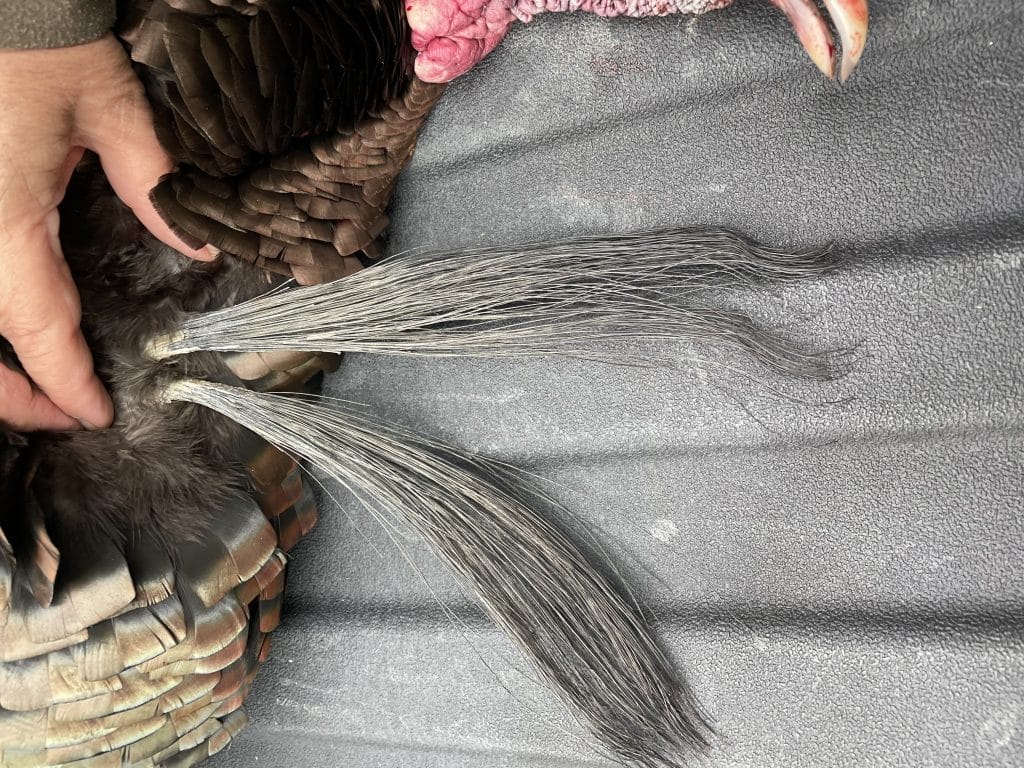
Scoring My Double-Beard Turkey
This was by far the largest “score” of any turkey I’ve taken (using the Michigan Big Game Record Book—CBM methods: total beard and spur lengths). With beard and spur added together it came out to a rough field score of 22. I’m not one for record books. It’s more of seeing and sharing something so different/unique taken in the turkey woods that kept me texting for a while.
When asked how big my turkey was, it’s easy to say I doubled down on one this year.
Be safe out there and good hunting to all!
Wild Turkey Fun Facts
SNOODY BLUES: The fleshy growth on a tom’s forehead is called a snood. No, snood length does not factor into the “record book” scoring system.
BEARDED HENS: All adult (tom) turkeys sport beards (jake beards are shorter and wispier), but biologists believe nearly 10 percent of hens also sport “long chest hair.”
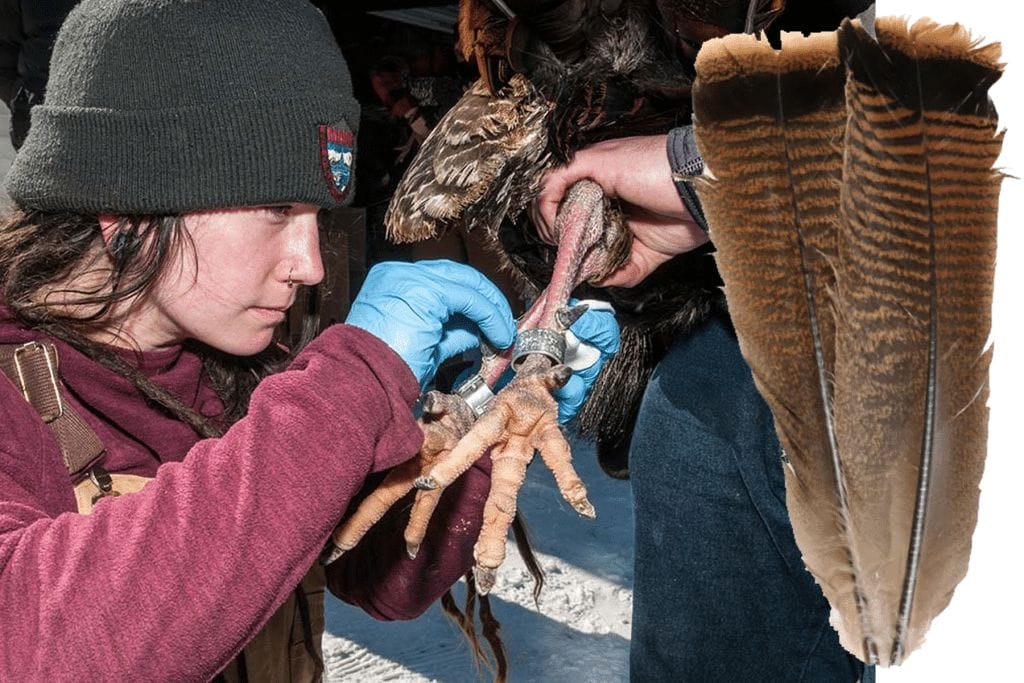
SPUR-BEARING HENS: Also rare, but the NWTF has seen it in banding operations, some hens sport spurs.
RECORD NUMBER OF BEARDS: Double beards are a rare occurrence, but some freaks have been taken. The world-record turkey had a total of 13 “countable” beards!
BEARDLESS IN THE BACKWOODS: According to NWTF banding records, about two in 1,000 gobblers have no beard at all.
TURKEY NUMBERS BOOMING: Through conservation efforts over the past century, with funds derived from the Pittman-Robertson Act, and thanks to sportsmen and women, there are approximately 6.5 million wild birds in the United States today.
(Source NWTF.org)
THE FEATHER COUNT: An adult turkey has 5,000 to 6,000 feathers.
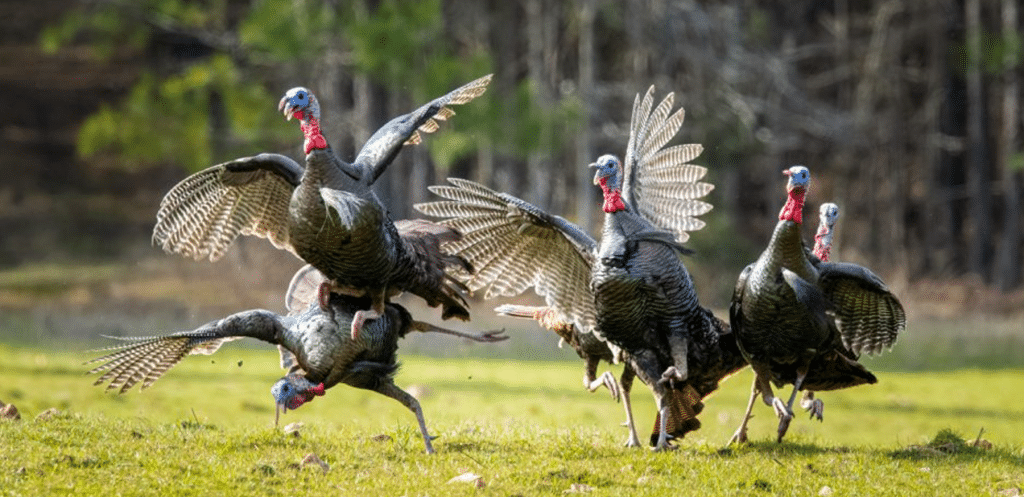
TURKEY SPEED DEMONS: Turkeys can clock 18 miles per hour on foot and up to 50 miles per hour in flight.
HERE’S THE POOP: Turkey droppings tell a bird’s sex and age. Male droppings are j-shaped; female droppings are spiral-shaped. The larger the diameter, the older the bird.
MOVE OVER, BALD EAGLE: Ben Franklin called the wild turkey a “bird of courage” and thought it would make a better national symbol.
(Source fws.gov)









